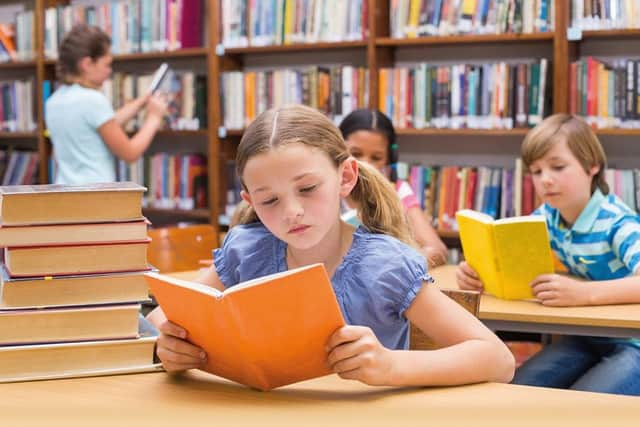Northern Ireland ranked fifth in the world for reading proficiency among primary school children
and live on Freeview channel 276
Northern Ireland’s primary school children are displaying significant talent at reading, according to the results of a major global survey.
It showed that the reading performance of the province’s primary school children ranked fifth in the world, with only pupils in Singapore, Ireland, Hong Kong and Russia receiving higher scores than our budding bookworms.
Advertisement
Hide AdAdvertisement
Hide AdThe Progress in International Reading Literacy Study (PIRLS) assessed the reading performance of 400,000 children in a total of almost 60 different countries.


The study monitors children’s reading skills as they approach the end of primary school, every five years.
It was first conducted in 2001 using data from a sample of nine and 10-year-olds, their parents, teachers and head teachers.
Previous PIRLS studies have also ranked the reading skills of NI pupils very highly - indicating that we have a forthcoming generation who look set to carry forward excellent literacy skills into adulthood, and given the size of the region, this is another reason for Ulster to feel proud of its young ones.
Advertisement
Hide AdAdvertisement
Hide AdThe PIRLS 2021 results, which have just been released, indicate that reading skills among this demographic of children in NI have again improved since the last analysis.
The most recent assessment involved analysing the reading capabilities of 4,000 pupils in 143 primary schools across the province.
NI children’s reading and comprehension score in 2021 was 566, signicantly above the international mean as well as higher than the results from 52 other countries.
Even better, close to a quarter of NI pupils achieved the highest standard in the global assessment – the third highest across all surveyed counties.
And the evidence also shows that girls are out-performing boys when it comes to reading, with this ‘gender gap’ apparent in most countries, although it is difficult to say why this is.
Advertisement
Hide AdAdvertisement
Hide AdThe international study also considered the manifold factors that can have an influence on children’s reading habits.
Most parents in NI said their child's learning had been "adversely affected" by the pandemic with the majority of pupils out of school for significant periods in 2020 and 2021 as a consequence of lockdown.
The majority of school principals also told the report's researchers that the teaching of reading had been affected by a shortage of resources.
The report's authors also found that children who achieved the best reading and comprehension scores had parents who liked to read to them and had easy access to a colourful and rich variety of books at home.
Advertisement
Hide AdAdvertisement
Hide AdThe majority of parents in Northern Ireland reported that they were reading with their children before they had started school.
According to the National Foundation for Educational Research’s Rachel Cassick, this is crucial in the development of high literacy among children.
"A very high proportion of pupils in Northern Ireland, their parents are doing stuff with them often when they're young," she told another media outlet.
"They're doing these things like reading books and singing songs [with their children] before they start primary school."
Advertisement
Hide AdAdvertisement
Hide AdWorryingly, funding for education was cut in the recent Stormont budget from Secretary of State Chris Heaton-Harris, meaning children from less well-off backgrounds will find it harder to get their hands on the reading material that interests them.